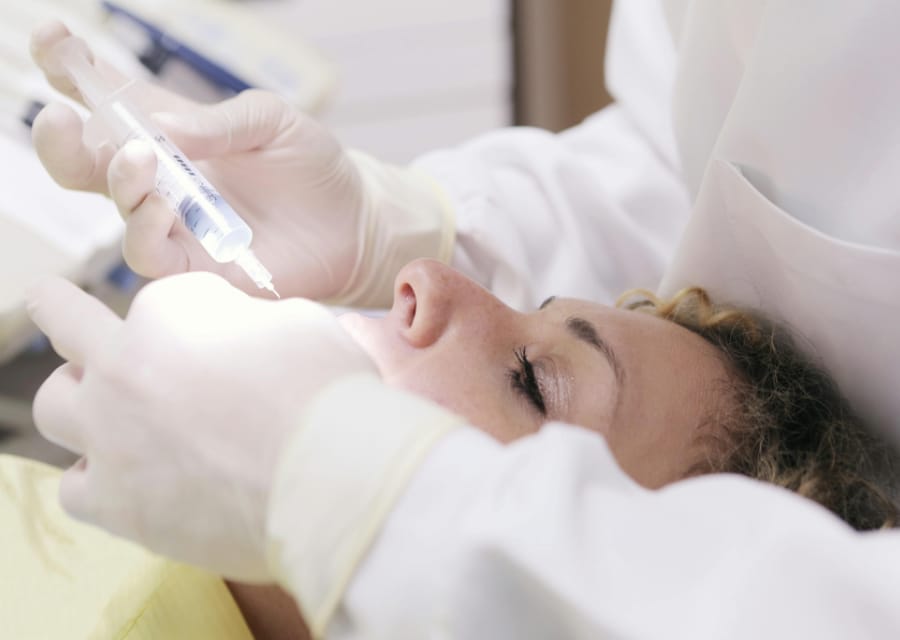
Oral cancer is a serious health concern that affects thousands of individuals each year. Early detection and treatment are crucial for improving outcomes, making it essential for everyone to understand the
risks, symptoms and treatment options available. In this comprehensive guide, we will explore the causes of oral cancer, how it is diagnosed and the various treatment options, empowering you with the knowledge needed to protect your oral health.
What is Oral Cancer?
Oral cancer refers to any cancerous growth that occurs in the mouth or throat. This includes cancers of the lips, gums, tongue, cheeks, floor of the mouth, hard and soft palates and throat. Oral cancer can be
aggressive and may spread quickly if not detected early. The prognosis for oral cancer is significantly better when it is caught in its early stages.
Causes and Risk Factors
Understanding the causes and risk factors associated with oral cancer can help you take preventive measures. Some of the most common causes and risk factors include:
1. Tobacco Use
Tobacco use, whether in the form of smoking cigarettes, cigars or chewing tobacco, is the leading risk factor for oral cancer. Chemicals found in tobacco can damage cells in the mouth and throat, increasing
the risk of malignant growths.
2. Alcohol Consumption
Heavy alcohol consumption is another significant risk factor. The combination of alcohol and tobacco increases the risk even further, as both substances can irritate the tissues in the mouth.
3. Human Papillomavirus (HPV)
Certain strains of HPV, particularly HPV-16, are linked to the development of oral cancer. HPV is a sexually transmitted virus that can lead to the growth of abnormal cells in the mouth and throat.
4. Sun Exposure
Excessive sun exposure can lead to cancers of the lips, particularly in individuals who spend a lot of time outdoors without protection. Using lip balm with SPF can help reduce this risk.
5. Age and Gender
Oral cancer is more common in individuals over the age of 50 and tends to affect men more than women. However, younger individuals can also develop oral cancer, especially those with risk factors like tobacco and alcohol use.
6. Poor Nutrition
A diet low in fruits and vegetables may increase the risk of oral cancer. Nutrients like vitamins A, C and E are essential for maintaining healthy oral tissues and a deficiency can lead to increased susceptibility to
cancer.
7. Chronic Irritation
Long-term irritation in the mouth, such as from ill-fitting dentures, can contribute to the development of oral cancer. Regular dental check-ups can help identify and rectify issues that may lead to chronic
irritation.
Symptoms of Oral Cancer
Recognizing the symptoms of oral cancer is essential for early diagnosis. Common symptoms include:
- Sore or ulcer that does not heal: Any sore or ulcer in the mouth that persists for more than two weeks should be evaluated.
- Lumps or thickening: Noticeable lumps or thickening in the tissues of the mouth.
- White or red patches: Unexplained white (leukoplakia) or red (erythroplakia) patches in the mouth.
- Difficulty swallowing: Pain or difficulty when swallowing or chewing.
- Changes in voice: Hoarseness or other voice changes that persist.
- Numbness: A feeling of numbness or loss of sensation in any area of the mouth.
If you experience any of these symptoms, especially if they persist for more than two weeks, it is crucial to consult a healthcare professional for evaluation.
Diagnosis of Oral Cancer
Diagnosing oral cancer typically involves several steps:
1. Physical Examination
A dentist or doctor will conduct a thorough examination of the mouth, throat and neck, looking for any signs of abnormalities.
2. Biopsy
If any suspicious lesions or lumps are found, a biopsy may be performed. This involves taking a small sample of tissue for laboratory analysis to determine whether cancer cells are present.
3. Imaging Tests
Imaging tests such as X-rays, CT scans or MRI scans may be ordered to determine the extent of the cancer and whether it has spread to other areas.
4. Staging
If diagnosed with oral cancer, further tests may be conducted to stage the cancer, which helps determine the best course of treatment. Staging involves assessing the size of the tumor and whether it has spread to lymph nodes or other parts of the body.
Treatment Options for Oral Cancer
Treatment for oral cancer will depend on several factors, including the type and stage of cancer, the patient’s overall health and personal preferences. Common treatment options include:
1. Surgery
Surgical options may involve removing the tumor and some surrounding healthy tissue to ensure all cancerous cells are eliminated. In advanced cases, lymph nodes may also be removed for examination.
2. Radiation Therapy
Radiation therapy uses high-energy rays to kill cancer cells. It may be used as the primary treatment, after surgery to eliminate remaining cells or to shrink tumors before surgery.
3. Chemotherapy
Chemotherapy involves the use of drugs to kill cancer cells or stop their growth. It may be administered orally or through intravenous (IV) infusion and is often used in conjunction with other treatments.
4. Targeted Therapy
Targeted therapies focus on specific characteristics of cancer cells. These therapies may be used to treat specific types of oral cancer that have certain genetic markers.
5. Rehabilitation and Supportive Care
After treatment, rehabilitation may be necessary to address changes in speech, swallowing or appearance. Supportive care, including nutrition counseling and pain management, is also essential for recovery.
Preventive Measures
Preventing oral cancer involves adopting a healthy lifestyle:
- Avoid tobacco products and limit alcohol consumption.
- Practice safe sex to reduce the risk of HPV transmission.
- Eat a balanced diet rich in fruits and vegetables.
- Use sunscreen on your lips and wear a wide-brimmed hat when outdoors.
- Maintain regular dental check-ups for early detection and prevention of oral health issues.
Conclusion
Understanding oral cancer, its causes, symptoms and treatment options is crucial for maintaining your oral health. By being proactive and aware, you can take steps to reduce your risk and seek early
intervention if necessary.
If you have concerns about oral cancer or your oral health, don’t hesitate to reach out to a qualified healthcare professional or dentist. Early detection and timely treatment can make a significant difference in outcomes. Your health is worth prioritizing and knowledge is a powerful tool in the journey to a healthier smile.
To schedule an appointment at ‘Sukumar Dental Clinic’ call +91-74182 10108 or WhatsApp Dr. Sukumar at +91-96552 25002. We take pride in having the top dental clinic in Palayamkottai, Tirunelveli. Alternatively, you can email us at info@sukumardental.com


